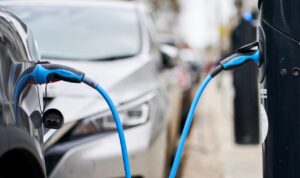How to Avoid Scams When Buying a Used Electric Car is an essential guide for anyone looking to invest in a pre-owned electric vehicle. In a market that’s rapidly expanding, it’s vital to navigate the potential pitfalls and ensure a safe and sound purchase. From understanding common scams to verifying seller credibility, this guide offers practical insights that can save you both money and hassle.
As electric cars become increasingly popular, so too do the scams targeting unsuspecting buyers. Knowing the types of scams that exist, recognizing warning signs, and conducting thorough research are crucial steps to protect yourself. With the right knowledge and tools, you can confidently make a well-informed decision while enjoying the benefits of eco-friendly driving.
Understanding Electric Car Scams

With the rise of electric vehicles (EVs), the market for used electric cars has grown significantly. This popularity, however, has also led to an increase in scams targeting unsuspecting buyers. Understanding these scams and recognizing the warning signs can help you navigate the used electric car market safely.Several common types of scams are often associated with used electric cars. These scams range from fraudulent listings to problems with the vehicle’s history.
Buyers should be aware of these pitfalls to avoid falling victim to dishonest practices. Researching the vehicle’s background and the seller’s reputation is crucial in ensuring a safe purchase.
Common Types of Electric Car Scams
Being aware of the prevalent types of scams can help you stay vigilant when shopping for a used electric car. Here are some common scams to watch out for:
- Fake Listings: Scammers often create attractive listings with low prices to lure buyers. These listings may feature stolen images or details of nonexistent vehicles.
- Odometer Rollback: Some sellers may tamper with the odometer to make it appear as if the car has fewer miles than it actually does, misleading buyers about its condition.
- Title Washing: This involves clearing a car’s title of any previous accidents or flood damage by transferring it to a different state where records may be less scrutinized.
- Nonexistent Warranties: Sellers may offer extended warranties that are either not valid or are from a non-reputable source, leading to potential financial loss for buyers.
- Pressure Tactics: Some sellers may rush buyers into making decisions without proper inspection or research, creating a sense of urgency that clouds judgment.
Warning Signs of Potential Scams
Recognizing the red flags can be key to avoiding scams when purchasing a used electric car. Here are notable indicators that a deal may be too good to be true:
- Prices Below Market Value: If the asking price is significantly lower than comparable listings, it may signal a scam. Always compare prices within the market.
- Poor Communication: Sellers who are evasive, defensive, or difficult to contact may have something to hide regarding the vehicle’s condition or history.
- Limited Payment Options: Be wary of sellers who insist on cash payments or money transfers, as these are often hard to trace and may indicate fraudulent intent.
- Reluctance for Inspections: A legitimate seller should encourage inspections and test drives. If they resist, it could be a sign of a scam.
- Unverifiable Information: If the seller cannot provide verifiable documentation, such as a vehicle history report or maintenance records, it raises concerns about the vehicle’s legitimacy.
The Importance of Research Before Purchase
Conducting thorough research is essential before committing to the purchase of a used electric car. This process includes verifying the seller’s credibility and the vehicle’s history.Start by checking the vehicle identification number (VIN) through services like Carfax or AutoCheck to access its history. This report will provide information on previous accidents, title issues, and service records. Additionally, researching the seller’s reputation on platforms like Yelp or local forums can give insights into their reliability.Utilizing online resources such as the National Highway Traffic Safety Administration can also help you track recalls and safety ratings for specific electric car models.
The more informed you are, the better equipped you’ll be to make a safe and confident purchase.
“An informed buyer is a smart buyer. Always prioritize research to avoid falling victim to scams.”
Essential Pre-Purchase Checks
When considering the purchase of a used electric car, it’s crucial to conduct thorough pre-purchase checks to ensure the purchase is both safe and worthwhile. This section will provide a detailed checklist to verify the authenticity of the seller, methods to assess the condition of the electric car, and guidelines for checking the battery health. These checks can help you avoid potential pitfalls and ensure you make an informed decision.
Seller Verification Checklist
Verifying the authenticity of the seller is a vital step in the buying process. It can prevent you from falling victim to scams or purchasing from unscrupulous individuals. Here are key points to consider when assessing the seller:
- Confirm the identity of the seller by checking for valid identification and ensuring the name matches the vehicle registration.
- Review the seller’s history, looking for online feedback or ratings on platforms where the vehicle is listed.
- Ask for maintenance records and history of the vehicle, as a reputable seller should be able to provide these documents.
- Ensure the seller is the legal owner of the vehicle and has the right to sell it.
- Meet in a public place and preferably during daylight hours to ensure a safe transaction environment.
Assessing the Condition of the Electric Car
Understanding how to assess the condition of the electric car is essential for determining its value and ensuring it meets your expectations. Here are some methods to help you in this process:
- Inspect the exterior for any signs of damage, rust, or previous repairs that may affect performance.
- Check the tires for wear and ensure they are of good quality, as they can significantly affect handling and safety.
- Examine the interior for wear and tear, and ensure all electronic components are functioning properly.
- Take the car for a test drive to assess handling, braking, and overall driving comfort.
- Review the vehicle’s odometer reading and compare it to the expected mileage for its age.
Checking the Battery Health, How to Avoid Scams When Buying a Used Electric Car
Battery health is a critical aspect of any electric vehicle, as it directly impacts performance and longevity. Here are crucial steps to check the battery health of the vehicle:
- Request a battery report from the seller, which should provide data on the battery’s capacity and state of health.
- Use specialized diagnostic tools, if available, to check the battery’s voltage, capacity, and overall condition.
- Inquire about how many charging cycles the battery has undergone, as this can indicate its age and remaining lifespan.
- Consider having a professional inspection performed to assess the battery if you lack the tools or expertise.
- Research the specific battery brand and model to understand common issues and expected lifespan.
Evaluating the Seller’s Credibility
When it comes to purchasing a used electric car, assessing the seller’s credibility is essential. A trustworthy seller can significantly reduce the risk of falling for scams and ensure a smoother transaction. Understanding how to evaluate a seller’s reputation will provide you with peace of mind and confidence in your purchase.Researching a seller’s credibility involves examining their reputation, feedback from previous buyers, and their overall presence in the market.
There are several key factors to consider and resources available to help you make an informed decision.
Key Factors in Researching a Seller’s Reputation
When evaluating a seller, consider the following key factors that can help you assess their credibility:
- Online Presence: A reputable seller often has a strong online presence, including a professional website and active social media profiles. Check for consistent branding and engagement with customers.
- Years in Business: Sellers who have been in business for several years typically have established credibility. Look for customer testimonials and case studies that highlight their experience.
- Membership in Professional Organizations: Sellers who are members of industry organizations or associations may adhere to higher standards of ethics and business practices.
- Transparency: Trustworthy sellers will usually provide clear information about their vehicles, including pricing, history, and any warranties or guarantees.
Resources for Checking Seller Reviews and Ratings
Utilizing online platforms to verify seller reviews and ratings is crucial. These resources can give you a comprehensive view of a seller’s reliability and customer service. Here are some useful platforms:
- Yelp: This site aggregates customer reviews and ratings for businesses, making it easier to gauge a seller’s reputation based on past transactions.
- Google Reviews: Google allows customers to leave reviews for businesses, providing a broad perspective on the seller’s overall performance and customer satisfaction.
- Better Business Bureau (BBB): The BBB offers accreditation and ratings based on a seller’s responsiveness to complaints and overall business practices.
- AutoTrader and CarGurus: These automotive marketplaces feature seller ratings and reviews, allowing you to evaluate individual sellers based on buyer feedback.
Significance of Obtaining a Vehicle History Report
Acquiring a vehicle history report is a vital step in ensuring the credibility of the seller. This report provides crucial information about the car’s past, including previous ownership, accident history, title status, and mileage verification.A vehicle history report can reveal red flags that might indicate a problematic purchase. For instance, if the report shows multiple accidents or a salvage title, it could suggest underlying issues with the vehicle.
Moreover, a credible seller should willingly provide this report or allow you to obtain one through services like Carfax or AutoCheck. This transparency adds to their trustworthiness and demonstrates their confidence in the vehicle they are selling.
“Knowledge is power, especially when it comes to making informed decisions about your car purchase.”
Negotiation and Pricing Strategies
When it comes to purchasing a used electric car, negotiating the price effectively can significantly impact your overall investment. Effective negotiation is not just about haggling but understanding the value of the vehicle and the nuances of the market. By employing strategic techniques, you can ensure that you’re not only paying a fair price but also that you’re making a sound financial decision.Recognizing the fair market value of electric vehicles requires diligent research and a keen eye for details.
Begin by checking online marketplaces, local listings, and resources such as the Kelley Blue Book or Edmunds to gauge the average prices for similar models based on condition, mileage, and features. This groundwork enables you to enter negotiations with solid data, empowering you to justify your offers and counteroffers.
Techniques for Negotiating Price
Effective negotiation strategies can make a tangible difference in the final price you pay for a used electric car. Here are some techniques to consider:
- Start Low but Reasonable: Begin your negotiation with a lower offer than your target price. This gives you room to move up while still aiming for your desired figure.
- Use Research to Your Advantage: Present your findings on market values and comparable sales as leverage. This approach can strengthen your position and demonstrate that you’re an informed buyer.
- Highlight Any Flaws: Politely point out any imperfections or issues with the car that might justify a lower price. For example, if there are scratches or a history of battery issues, use these to negotiate.
- Be Prepared to Walk Away: Sometimes, the best negotiation tactic is being willing to leave if the price doesn’t meet your expectations. This can prompt sellers to reconsider their stance.
Identifying Fair Market Value
Understanding what constitutes fair market value is crucial for making a wise purchase. Electric vehicle prices can vary significantly based on several factors, including model, age, mileage, and condition. To evaluate fair pricing, consider these aspects:
- Model Reputation: Some electric car models may hold their value better than others. Research which models have higher resale values and why.
- Mileage: Determine the average mileage for similar vehicles and how it affects prices. Generally, lower mileage may justify a higher asking price.
- Battery Health: The health of the battery is critical for electric vehicles. Use tools like capacity test results to gauge the battery’s condition, which can greatly influence the price.
- Market Trends: Keeping an eye on current trends in the electric car market, such as the influx of new models or changes in government incentives, can provide insight into price dynamics.
Red Flags for Inflated Prices
While negotiating, it’s important to be aware of potential red flags that could indicate an inflated price. Here are some signs to watch for:
- Unusually Low Comparables: If the seller’s asking price is significantly lower than comparable listings, it may indicate issues with the vehicle.
- Overly Eager Seller: If the seller seems desperate to sell quickly, this could be a sign they are trying to offload a problematic car.
- Lack of Documentation: If the seller cannot provide maintenance records, accident history, or original purchase receipts, there may be underlying issues that justify a lower price.
- Sudden Price Drops: If a vehicle’s price has dropped dramatically in a short time, investigate why. This could hint at problems with the car that the seller is not willing to disclose.
Finalizing the Purchase Safely
When it comes to finalizing the purchase of a used electric car, ensuring that the transaction is conducted safely is paramount. This stage is critical, as it involves not only the transfer of funds but also the necessary legal and administrative steps. Taking the right precautions can help you avoid potential pitfalls and secure your investment effectively.
Payment Options for Safe Transactions
Choosing the right payment method is essential to ensure a safe transaction. Cash transactions can be risky, especially when meeting a seller in person, while electronic payments offer greater security and a digital tracking trail. Below are the safer payment options to consider:
- Bank Transfer: This method allows for a direct transfer of funds from your bank to the seller’s, offering a secure way to complete the purchase. Ensure you initiate the transfer only after confirming the legitimacy of the seller and the car.
- Escrow Services: Utilizing an escrow service can protect both the buyer and seller. The service holds the funds until both parties have fulfilled their agreed-upon conditions, such as verifying the car’s condition and paperwork.
- Credit Card Payment: If the seller accepts credit cards, this can add a layer of protection. Many credit cards offer fraud protection, giving you recourse if the transaction goes awry.
Ensuring Legitimate and Complete Paperwork
Completing the necessary paperwork is crucial in making sure the purchase is legitimate. The documentation should include the title, bill of sale, and any additional disclosures required by law. Here’s a checklist to follow:
- Title Transfer: Verify that the title is clear and includes the seller’s signature. This document proves ownership and should be transferred to you without any liens.
- Bill of Sale: This document acts as a receipt for the transaction, detailing the sale price, vehicle identification number (VIN), and the names of both the buyer and seller. Make sure it’s signed by both parties.
- Service Records: Request any service records or documentation related to the electric car’s maintenance history. This information can be helpful for future repairs and assessing the vehicle’s condition.
Verifying Car Registration and Title Transfer
Before finalizing the purchase, double-checking the car’s registration and title transfer process is vital. This ensures that you avoid any legal complications down the road. Here’s how to verify:
- Check with Local DMV: Contact your local Department of Motor Vehicles (DMV) to verify the vehicle’s registration status and ensure there are no outstanding liens or issues.
- VIN Verification: Use the Vehicle Identification Number (VIN) to check the car’s history. Numerous online services can provide reports that detail past ownership, accidents, and repairs.
- Complete the Title Application: Follow your state’s guidelines for completing the title application promptly after the purchase. This step is crucial for establishing your ownership legally.
Post-Purchase Precautions: How To Avoid Scams When Buying A Used Electric Car
After acquiring a used electric car, it’s essential to take specific steps to ensure its longevity, performance, and your overall satisfaction. Implementing best practices in maintenance can prevent unexpected breakdowns and enhance the driving experience. Additionally, being aware of how to handle potential scams or suspicious activities can protect you and others in the electric vehicle community.
Best Practices for Maintaining the Electric Car
To guarantee your electric vehicle remains in top condition, regular maintenance is key. Here are several recommendations to keep your car running smoothly:
- Regular Software Updates: Many electric vehicles receive software updates that improve performance and add new features. Check with the manufacturer for available updates.
- Tire Maintenance: Regularly check tire pressure and tread depth to ensure optimal performance and safety. Proper alignment can also improve efficiency.
- Battery Care: Monitor the battery’s health and charging habits. Avoid letting it drop below 20% and try to keep it charged between 20% and 80% for optimal battery lifespan.
- Cleansing the Exterior and Interior: Regular cleaning helps prevent rust and maintains the aesthetic appeal of your vehicle. Use gentle cleaners suitable for electric cars.
- Scheduled Inspections: Follow the manufacturer’s recommended maintenance schedule for inspections and servicing to catch potential issues early.
Reporting Suspicious Activity or Scams
If you encounter fraud or suspicious behavior during your buying process, knowing how to report it is crucial for your protection and that of future buyers. Follow these steps:
- Contact Local Authorities: If you suspect a scam or illegal activity, report it to your local police department.
- Notify State Attorney General: Most states have consumer protection divisions that can investigate scams. Reporting to them can help prevent others from falling victim.
- File a Complaint with the Federal Trade Commission (FTC): The FTC allows you to report fraud online, which can assist in larger investigations.
- Inform the Seller’s Platform: If you bought the vehicle through a marketplace, notify them of the suspicious activity for further investigation.
Resources for Troubleshooting Common Electric Car Issues
Being aware of resources available for troubleshooting can save you time and frustration with your electric vehicle. Here are some reliable options:
- Manufacturer’s Website: Most manufacturers provide detailed user manuals and troubleshooting guides specific to their models.
- Online Forums: Communities like Tesla Motors Club or other electric vehicle forums are great for sharing experiences and solutions.
- YouTube Tutorials: Many car enthusiasts create video guides addressing common issues with electric vehicles, offering visual steps for troubleshooting.
- Mobile Apps: Various apps can diagnose issues based on car diagnostics, providing you with immediate feedback and suggestions.
- Local Dealerships or Certified Mechanics: Establishing a relationship with a local dealership or mechanic familiar with electric vehicles can provide personalized support.






